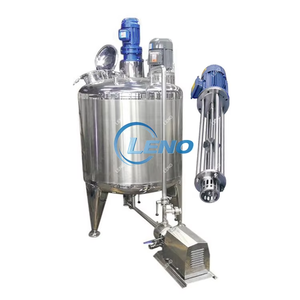Introduction to Standard Flask Chemistry
Standard flask chemistry plays a crucial role in various scientific and industrial processes, serving as a fundamental tool for mixing, storing, and analyzing chemical substances. These laboratory vessels are specifically designed to facilitate complex reactions and experiments with precision and safety. Whether you're conducting academic research or working in a commercial setting, understanding the different facets of standard flasks in chemistry can enhance your work efficiency and experimental results.
Types of Standard Flask Chemistry
Standard flasks in chemistry come in various types to accommodate diverse applications. Each type is engineered to meet specific requirements:
- Volumetric Flasks: Designed for precise volume measurements, these flasks are ideal for preparing solutions with high accuracy.
- Erlenmeyer Flasks: Characterized by their conical shape, these flasks are perfect for mixing liquids and performing chemical reactions.
- Round-bottom Flasks: Often used in distillation processes, these flasks provide uniform heating and ease of stirring.
- Filter Flasks: Equipped with a side arm, these flasks are employed for vacuum filtration procedures, making them essential in chemical synthesis.
Function and Features of Standard Flask Chemistry
Standard flasks in chemistry are not only versatile but also feature specific designs that enhance their functionality:
- Capacity Variations: Available in different sizes, these flasks can hold various volumes from a few milliliters to several liters, catering to diverse experimental needs.
- Material Composition: Generally made from borosilicate glass or high-quality plastics, they are resistant to thermal shock and chemical corrosion.
- Precision Markings: Many standard flasks come with graduation marks that enable accurate volume measurement essential for preparing solutions.
- Screw Cap and Stopper Options: These provide secure sealing, preventing contamination and evaporation during experiments.
Applications of Standard Flask Chemistry
The applications of standard flasks in chemistry are vast and varied, making them indispensable tools in both academic and industrial contexts:
- Analytical Chemistry: Used for sample preparation and dilution, standard flasks are crucial in laboratory analysis.
- Pharmaceutical Manufacturing: Employed for compounding medications, ensuring precise formulations and dosages.
- Education: Standard flasks are fundamental in teaching labs, allowing students to conduct experiments and understand chemical properties.
- Environmental Testing: Used to collect and analyze samples from various sources, contributing to research on pollution and sustainability.
In conclusion, standard flask chemistry is a concept rich in functionality and relevance across multiple fields. Knowledge of the various types, features, and applications equips scientists, students, and industry professionals with the tools needed to excel in their respective areas. Whether you’re measuring precise volumes or conducting impactful experiments, investing in the right standard flask will undoubtedly enhance the overall scientific endeavor.






















































